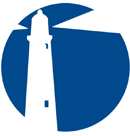
RARGOM Meeting-Conference Planning
Introduction
Advance preparation for any RARGOM meeting is essential and should begin early if the meeting is to be as successful as the organizers hope. Based on the experience of several conference planners at RARGOM institutions, we have developed a planning check list. Regardless of the scale of meeting, all major components of the list should be considered by the planning committee.
A conference is perceived to be successful when all of the mechanics of the event are invisible to all but a few of the organizers. This occurs with early planning and adequate organizational support. Our check list is a reminder of how much support a successful meeting requires.
RARGOM Board Meetings are held 2-3 times per year at member institution campuses. Following a short business meeting, a plenary discussion of a GoM research topic will be the primary focus of the meeting. Topics will be selected in advance by the RARGOM Board in consultation with staff of the member institutions. The meeting will be planned and carried out by a small ad hoc planning committee. These guidelines are prepared for the benefit of those committees. It is expected that the organizational effort and the direct costs (e.g., meeting rooms, AV, coffee breaks) of the meeting will be supplied by the host institution and the planning committee (perhaps funded by proposals).
Planning
RARGOM will select a research topic for discussion and will appoint a planning committee of member institution staff who are familiar with the topic. The planning committee will be responsible for organization and financial support of the meeting. The scale and structure of the meeting will be defined by the committee.
RARGOM expectations:
- the meeting will focus on a single regional research topic. The intent is to use this forum to generate a regional conversation about the status of a particular research topic.
- participant discussion is a priority (this is not intended to be a traditional science symposium)
- the minimum audience will be the RARGOM Board plus 2-3 guests from each member institution plus an additional “few” from the host institution (total approx. 50) This can be increased by the planning committee at their option.
- the meeting is nominally “open” to any member institution staff
- produce a summary report (by planning committee) for web posting. This summary (and supporting documentation) may become a vehicle for continuing the discussion instigated at the meeting.
- meetings are normally 1-day, and run from 10AM to 3PM with a working lunch. The first hour should be reserved for introductions and RARGOM business.
The planning committee will:
Prepare a clear statement of workshop goals
- Address our audience,of researchers and resource management staff who are not necessarily familiar with the details of this topic.
- Focus. Get specific with a detailed achievable agenda. This is only a 4-hour meeting.
Schedule
- Make a realistic estimate of time to accomplish each planning task, with task assignments (made by planning committee)
- Create a deadline for each task
- For the planning committee to act effectively, delegate authority to individuals responsible
- Follow-up regularly with each assignment.
Workshop format. Clearly define:
- Number of participants (size)
- Meeting structure—mix of formal presentation vs round table discussion. Formal talks should be overviews, intended to prompt plenary discussion.
- Length of meeting (normally 1-day, may be expanded by planning committee if the issue or situation warrants). Extended meetings will require scaled up planning effort.
- Budget (in hand vs anticipated),
a. planning
b. implementation
c. publication of results
Provide adequate local host staff support “on-call”
Logistics/Implementation
Pre-workshop preparation is important
Announcement
- Use RARGOM email mailing list, add other interested PIs from other existing lists if possible
- RARGOM reps will identify interested individuals at their institutions
- Prepare a web poster that individual Reps can distribute in hard copy
- Encourage participation beyond the Board reps
Registration
Know who plans to attend (important for meeting room size, no. of lunches, etc.)
(RARGOM needs to keep track of attendees-record contact info)
Flexibility (how many options are you prepared to deliver?)
- How to register?
- Cap registrations? (number, date)
- (increasing options increases complexity requiring increased rules and higher degree of organization/support; keep it simple)
Fees
- Use fee to support some costs of meeting (e.g., lunch)
Amenities (Travel, Food, Lodging, Non-workshop Activities)
- Travel costs usually paid by meeting participants. Encourage car-pooling (responsibility of Rep to organize)
- Parking reservations made by planning committee
- Supply travel maps with registration materials
- Special guests may require travel support, to be arranged as needed by planning committee
Lodging
- Not usually required; may be needed for a longer meeting. Consider:
- Advance notice to hotel (e.g. 60 days, much more “in-season”)
- Seasonality of demand; plan ahead
- For a guaranteed price, planners may need to guarantee payment.
- Reservations by individuals vs by workshop staff
- Keep it simple; reduce options to avoid a large demand on planning committee
Food (schedule time for relaxed discussions over food)
Meals
- Bag lunches are usually provided so that time is not taken away from the discussion. Meeting participants may be charged for lunch; meeting planners need to be able to accept cash payment.
- Individual options? Keep options low; provide a selection of bag lunches to be selected from the “buffet.”
Snacks
- Coffee/tea/soda/danish/muffins/fruit provided by local host
General
- Meeting space; adequate size, convenient location
- Anticipate participants may need to interact with home base (fax, telephone)
- Consider special facilities… phone, fax, photocopy, computer, Audio visual
- (Projectors, projectionist, overhead, slide, VCR)
